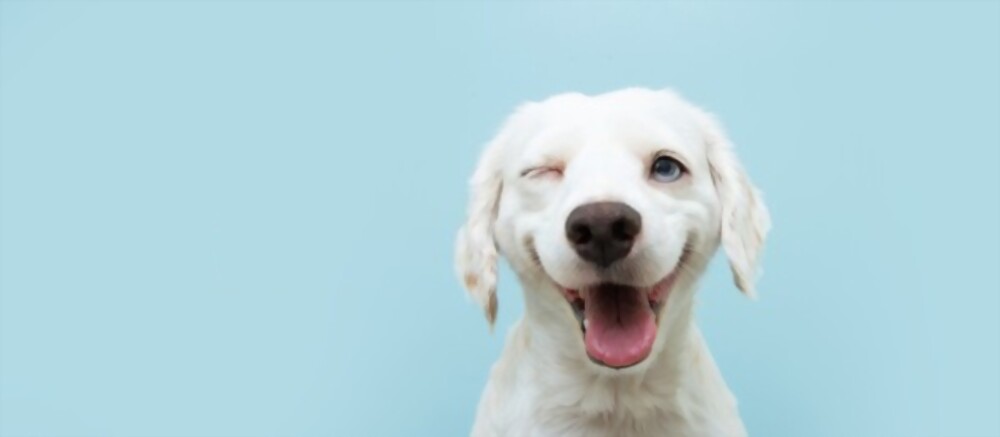Cats are indeed the queens of puking hairballs every now and then but they’re not the only creatures susceptible to developing hairballs. In fact, dogs might also suffer from hairballs caused by grooming habits, skin infection, stress, and other potential issues! Hairballs are caused by swallowing hair that doesn’t pass through the digestive system and they are probably nothing to worry about but since puking hair isn’t fun for dogs or their owners, there are effective ways to avoid the formation of hairballs in the first place! Pet Barn is here to answer all your concerns about hairballs with trusted ways to prevent them.
The Causes of Hairballs
Hairballs form when your dog ingests fur or hair and does not smoothly pass through the digestive system but collect, forming a hairball. Indicative signs of a hairball are coughing, retching, vomiting, loss of appetite if the blockage occurs, and sometimes gastrointestinal distress including diarrhea.
Hairballs can be dangerous if they weren’t vomited or passed as they can cause blockage and gastrointestinal symptoms with pain! However, it’s not difficult to keep your dog safe from hairballs so, stick around!
Is Your Dog A Hunter?
The hairballs your dog is puking don’t necessarily belong to them! Small prey like rodents or other furry critters can develop hairballs in the stomach if ingested. It is nature, you can’t prevent your fellow hunter from following the urging instincts but you can supervise your dog on its journey and stay prepared with deworming medication and parasite prevention.
Or Maybe a Puppy Hunter?
Puppies might ingest some of their mother’s hair while nursing which develops hairballs in their stomach. You can easily solve this by shaving the mother’s belly which is also good to avoid dirt build-up.
It’s all about the Grooming!
Though dogs are not as vigorous self-groomers as cats that doesn’t mean they don’t have the habit of self-grooming. Long-haired dogs or dogs who shed a lot are more prone to developing hairballs. Swallowing small amounts of hair is an ordinary thing in the wildlife but sometimes hair doesn’t pass through the digestive system and get hung up in the esophagus, stomach, or intestines causing a hairball. We recommend grooming your dog regularly, especially during shedding seasons. Brushing with wide combs every day can help get rid of the loose hair before your dog ingests it. Also, clipping your dog’s coat with seasons change is also advisable to bring back life to its majestic fur!
Are There Signs Of Anxiety?
When dogs are feeling stressed or bored they might end up chewing on their skin ingesting large amounts of hair. It’s not hard to tell if your dog is anxious, make sure you always find loving ways to cheer up the mood or try increasing the daily walks.
Ensure Your Dog Is Free From Skin Infections
If you notice your dog licking its fur excessively, it’s probably an indication of dry, irritated skin, a skin condition, or a tick or flea bite. In order to know what to do in this case, you need to examine the skin, if you noticed white flakes then your dog is suffering from dry skin and it can be treated with a moisturizing shampoo. On the other hand, bacterial or fungal infections need should be treated with suitable medication before they cause damage to the skin.
Itching with hair loss is another red flag! When dogs feel itchy, they tend to chew on their skin swallowing big amounts of hair that transforms into hairballs! Itchy skin can be a result of an allergic reaction thus, it’s important to seek the vet’s help to prescribe the right medication.
Parasites can be crawling on your dog’s skin causing all types of discomfort and itchiness therefore, you should always keep up a regular check-up and anticipate any change in your dog’s behavior.
Keep Up A Healthy Eating Routine!
Hair loss is a clear sign of a poor diet! As we mentioned, hair loss means more ingested hair from self-grooming therefore, it’s important to fix the problem inside out. We recommend keeping your dog’s diet balanced and to include vegetables and not only meat!
Omega 3 fatty acids and fish oil are important to lubricate the digestive system helping the ingested hair to get through the system easily. Also, these supplements can strengthen hair.
Keeping your dog hydrated is also essential to help the ingested hair get through easily as dehydrated dogs are more prone to developing hairballs.
Try Natural Remedies!
– Pumpkin is full of essential nutritious elements and important vitamins like A, C, and E. Adding pumpkin to your dog’s diet can improve digestion and prevent developing hairballs.
– Green beans are the best friends of your dog’s digestive system as they are rich in fiber and work great with water to prevent hairballs.
Cleaning mucus hairballs on the carpet or on the bed can be a really annoying task but the truly heartbreaking thing for any pet owner is seeing their sweet partner suffering! You can easily keep your dog’s hairballs free by following these easy steps. Pet Barn would love to hear about your experience with hairballs in the comments, hopefully, it’s a happy story!

